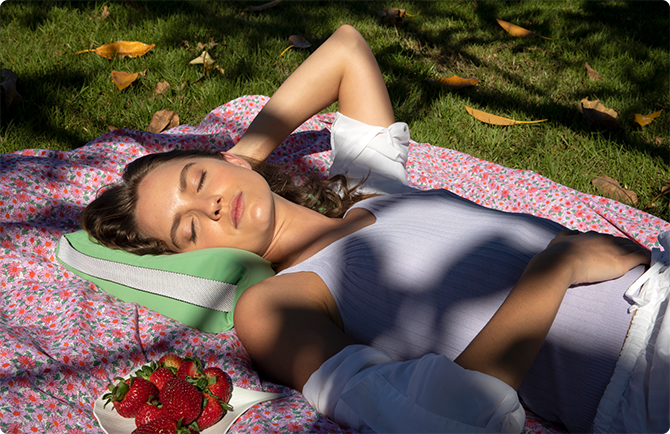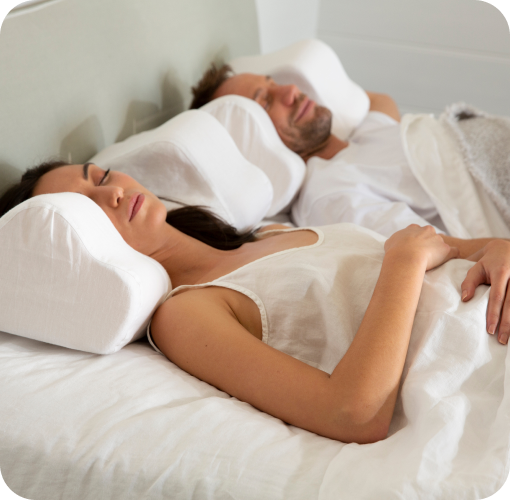We all know the feeling. You fall into bed exhausted, ready to close your eyes and fall asleep when suddenly your mind begins whirring and thoughts of the should haves, could haves and must-dos start swirling around in your brain. The more you worry, the harder it is to sleep and worrying about lack of sleep just fuels the fire. Most people will experience this periodically, and according to the National Institutes of Health, sleep disturbance and stress can have a huge impact on our health.
The relationship between stress and sleep is both simple and complex. Simple because it’s easy to see how an imbalance of the two can create a vicious cycle. And complex, because the hormones involved in both stress and sleep affect many other biological conditions and processes, including mood, cognition, and weight control.
So how does stress affect sleep?
Our bodies, despite having mastered space travel and quantum physics, are, genetically almost identical to our ancestors who roamed the African savannahs. We react to a perceived threat in the same way as the first humans did, releasing a flood of adrenaline and other stress hormones such as cortisol around the body. We developed this response so we could flee our enemy or react to dangers in the environment. This is why, when you're stressed at bedtime, it's no wonder you can't sleep – your body is prepared to protect you so can't possibly allow you to doze off.
High levels of stress not only affect your ability to get to sleep, they also affect the length and quality of your sleep. This can mean a restless night, tossing and turning or waking frequently and then struggling to nod off again. There's nothing worse than lying awake staring at your alarm clock an hour before it goes off. Feeling exhausted at work becomes another thing to stress about.
How can we reduce stress and sleep better?
Improving sleep requires stress management, and stress management requires better sleep. With this knowledge, we can even turn the vicious circle into a virtuous one, and use it to our advantage. It makes sense that if you can reduce your stress response, you'll get better sleep, and waking refreshed will in turn help you manage stress.
Let's start with stress. One of the best ways to manage stress is to first recognise it. Acknowledging your feelings by writing them down or talking about them can help put your problems into perspective. Many people find it useful to keep a journal, a safe place to tuck your thoughts for the night so they don't prey on your mind as you rest.
Creating a calm space to sleep
A clear mind sets up your emotional sleep environment, and investing in your physical environment is just as important. Make your bedroom your sanctuary, a place where the world stops at the doorway and only relaxing, calming thoughts and actions are allowed in. Protect your sanctuary by keeping screens and devices away so you're not disturbed by the needs of work or social media. Make your bed and bedding as comfortable and luxurious as you can, so you feel a sense of pleasure as you pull back the covers and slide between the sheets.
How meditation helps you drift off
Other ways to help reduce stress and improve sleep include maintaining regular sleep and waking hours and practising mindfulness before bed. This helps calm any remaining anxiety and quiet restless thoughts that may try and invade your resting brain. Mindfulness apps can help you get started – choose one with voices that soothe you, and sessions that suit your purpose. Smiling Mind includes several sessions that gently encourage sleep, and 10% Happier offers ‘mindfulness for fidgety sceptics’ – you'll know if you fit into that category.
It’s good to remember the Zen Buddhist saying, ‘You should sit in meditation for 20 minutes every day – unless you're too busy, then you should sit for an hour.’ Establishing a routine will make it easier to begin a meditation practice, which may be as simple as sitting comfortably and counting your breaths.
With a calm mind and a cosy, supportive bed, you're much more likely to get a longer, more restorative sleep. Like many things worth having, good sleep takes practice. We hope these few simple ideas will help you sleep well and wake up ready to better face whatever life brings.
Please connect with us on social @hyoumankind and let us know your tips for reducing stress and improving sleep.
Explore the memory foam pillow range.
Further reading:
Ten Percent Happier, Meditation for a happier, healthier you.
Interactions between sleep, stress, and metabolism: From physiological to pathological conditions.
How does inadequate sleep affect health?










